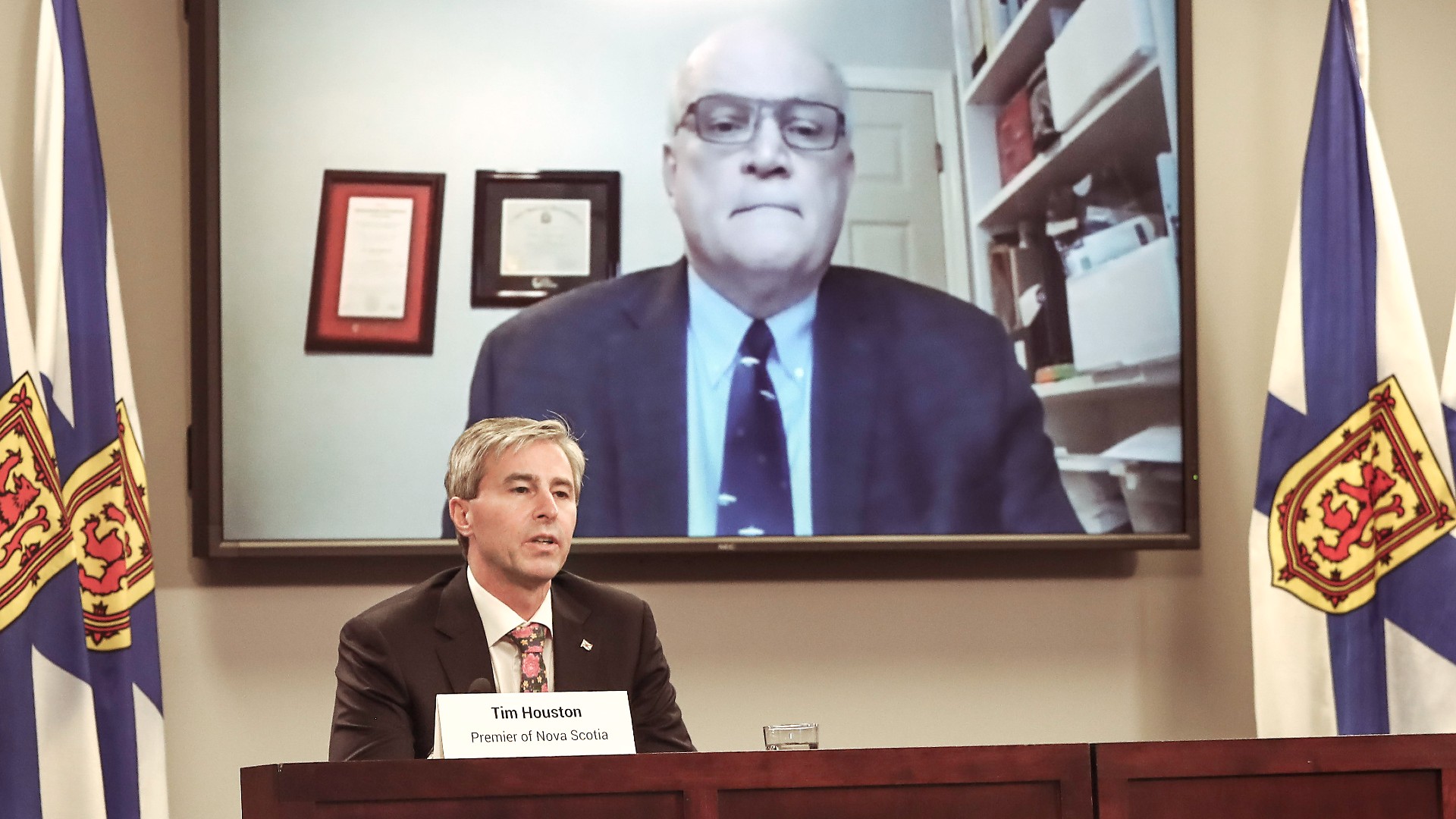Nova Scotia schools to reopen on Monday, Houston reinforces message on testing
Strang urges Nova Scotians to 'please step up, take this seriously, do your part'

caption
Dr. Robert Strang and Premier Tim Houston address the province with updates regarding the latest wave of the Omicron variant of COVID-19 on Jan. 12.Nova Scotia Premier Tim Houston confirmed on Wednesday that schools will return to in-person education on Monday.
During Wednesday’s COVID-19 briefing, he said updated ventilation systems for 71 schools have arrived and been distributed to classrooms across the province. About 25,000 tests will also be distributed.
“The best place, the safest place, the warmest place, for many of our children, is in school,” Houston said.
The province reported one death – a woman in her 60s in the Western Zone.
The Nova Scotia Health Authority also reported 837 lab-confirmed cases of COVID-19, bringing the estimated number of active cases in the province to 6,867.
As of Wednesday, 60 Nova Scotians are hospitalized with the Omicron variant of COVID-19, two of whom were hospitalized before the current wave. There were 12 admissions and seven discharges, and the average hospital stay was 5.8 days.
Five people are in intensive care. The average age of those hospitalized is 66, and there is one child under five in hospital with COVID-19. According to Houston, 25 per cent are unvaccinated.
There are also 40 people who arrived at the hospital for other procedures, and were found to test positive, and 94 people who contracted COVID-19 after being admitted to the hospital.
Houston asked Nova Scotians to bear with the province as they shift their approach to testing.
“We no longer need to use extensive testing to confirm the existence of the virus in our communities,” he said. “We know it’s here.”
Houston also acknowledged that a decrease in available rapid testing is partially due to supply chain concerns. The province has been waiting on an order of about two million more tests, in addition to their allocation from the federal government.
“We do expect to start seeing small portions from the federal government arrive next week, and every week thereafter, but there are no guarantees on arrival dates.”
The province is distributing about 830,000 rapid tests per week across the province, primarily going to testing centres, healthcare locations, and places at high risk for outbreak.
While Nova Scotians won’t be able to get daily rapid tests anymore, Houston stressed, “If you need a test, you will get a test.”
Nova Scotia chief medical officer of health Dr. Robert Strang stressed the importance of protecting vulnerable members of the community.
He attributed the low number of hospitalizations and deaths to the vaccine, but emphasized that it’s important to keep in mind that the virus can still have deadly consequences, and offered his condolences to the five families who lost loved ones this past week.
Anybody who needs a rapid test has to make an appointment online, and must fill out a self-assessment before being directed to a testing facility.
Strang emphasized the importance of following the rules, and said not to show up to the testing facility unannounced or try to find a way around the system.
He urged Nova Scotians to not only follow restrictions, but to be patient with the overwhelmed health-care system, which at any time, has 500-700 health care workers off work because of COVID-19 – more than in any previous wave.
“If I sound concerned it’s because I am, deeply,” Strang said. “And I’m asking every Nova Scotian to step up, take this seriously, do your part.”
About the author
Elizabeth Foster
Elizabeth Foster is a fourth-year journalism student from Maine. She also works as the Arts and Lifestyle editor of the Dalhousie Gazette and...

w
wesley glenn eisenhauer